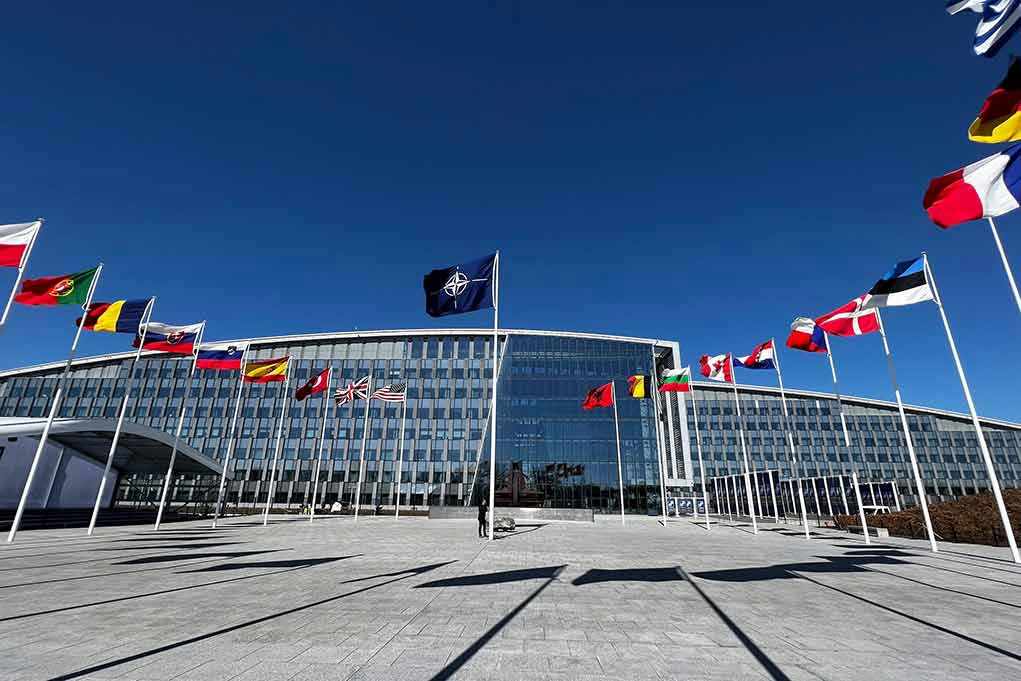
A Russian drone carrying explosives breached NATO airspace in Lithuania, triggering an urgent request for allied military support and exposing major vulnerabilities on Europe’s front line.
Story Snapshot
- Lithuania formally appealed to NATO for immediate air defense assistance after a Russian drone with explosives entered its territory.
- The incident marks a dangerous escalation amid ongoing Russia-NATO tensions and prior diplomatic expulsions.
- Security experts warn that such incursions threaten regional stability and test NATO’s deterrence and collective defense commitments.
- Lithuania’s plea spotlights broader concerns about hybrid warfare, border security, and the credibility of Western alliances.
Russian Drone Escalates Tensions on NATO’s Eastern Flank
In late July or early August 2025, Lithuanian authorities recovered a Russian drone loaded with explosives after it crossed into Lithuanian airspace. Unlike previous incidents involving surveillance aircraft, this event involved a weaponized drone, signaling a significant escalation in the threat faced by NATO’s eastern members. Lithuania’s leadership responded by urgently contacting NATO Secretary General Mark Rutte, emphasizing the seriousness and immediacy of the security risk. This direct military provocation has brought renewed scrutiny to the vulnerabilities of NATO’s border states as Russia continues to test the alliance’s resolve.
Lithuania’s request for enhanced air defenses comes against a backdrop of deteriorating relations with Russia since 2022. As a Baltic state bordering Russia’s Kaliningrad exclave, Lithuania has a long history of tension with Moscow, particularly since its independence from the Soviet Union. Over the past three years, Lithuania has expelled numerous Russian diplomats, citing espionage and security threats, while Russia has retaliated in kind. The nation has also taken a leading role in supporting Ukraine and imposing sanctions on Russia, making it a frequent target for hybrid aggression, including cyberattacks and disinformation campaigns. The recent drone incident, however, moves beyond hybrid tactics to a direct military challenge inside NATO territory.
Stakeholders and Power Dynamics in the Region
The key players in this unfolding crisis include Lithuania’s President Gitanas Nausėda and his security cabinet, NATO’s leadership, and the Russian government under President Vladimir Putin. Lithuania, while small, leverages its NATO and EU memberships for protection, pressing for collective defense measures under Article 5. NATO must balance the need to deter further Russian aggression with the risk of escalation, as its credibility and unity are at stake. Meanwhile, Russia seeks to intimidate the alliance’s eastern flank, test response times, and pressure pro-Ukraine states. The outcome of Lithuania’s appeal to NATO will influence the balance of power and deterrence on Europe’s front line.
The broader significance of this incident reaches beyond Lithuania. For the Baltic states and all NATO members, the entry of an armed Russian drone into alliance airspace is a stark reminder of the dangers posed by complacency in defense and border security. The incident has already prompted heightened military readiness in Lithuania, and may lead to the deployment of additional NATO air defense assets in the region. It also fuels public anxiety and anti-Russian sentiment, while further straining diplomatic and economic ties. As security experts argue, incidents like these blur the line between espionage and outright attack, underscoring the urgent need for robust, integrated air defense and rapid-response capabilities throughout the alliance.
Implications and the Road Ahead for NATO and U.S. Interests
In the short term, NATO’s response to Lithuania’s request will determine whether deterrence is maintained or further provocations are invited. A strong show of allied support—such as deploying air defense systems or increasing military patrols—would reassure frontline states and reinforce the alliance’s commitment to collective security. Failure to act decisively could embolden Russia and undermine confidence in Western security guarantees. Longer-term, this incident is likely to accelerate NATO’s plans for reinforcing its eastern flank, increase defense spending, and spur investment in counter-drone technologies. For American conservatives, the event is a stark example of why border security, strong defense, and clear-eyed realism about foreign threats remain paramount in protecting constitutional values and allied interests.
Sources:
Lithuania expels Russian diplomats, citing security concerns – Interfax
Lithuania expels Russian charge d’affaires – Anadolu Agency
Lithuania–Russia relations – Wikipedia
Countries Expel Russian Diplomats in Protest Over Ukraine – U.S. Embassy Italy
Lithuania expels Russian ambassador – Euractiv




